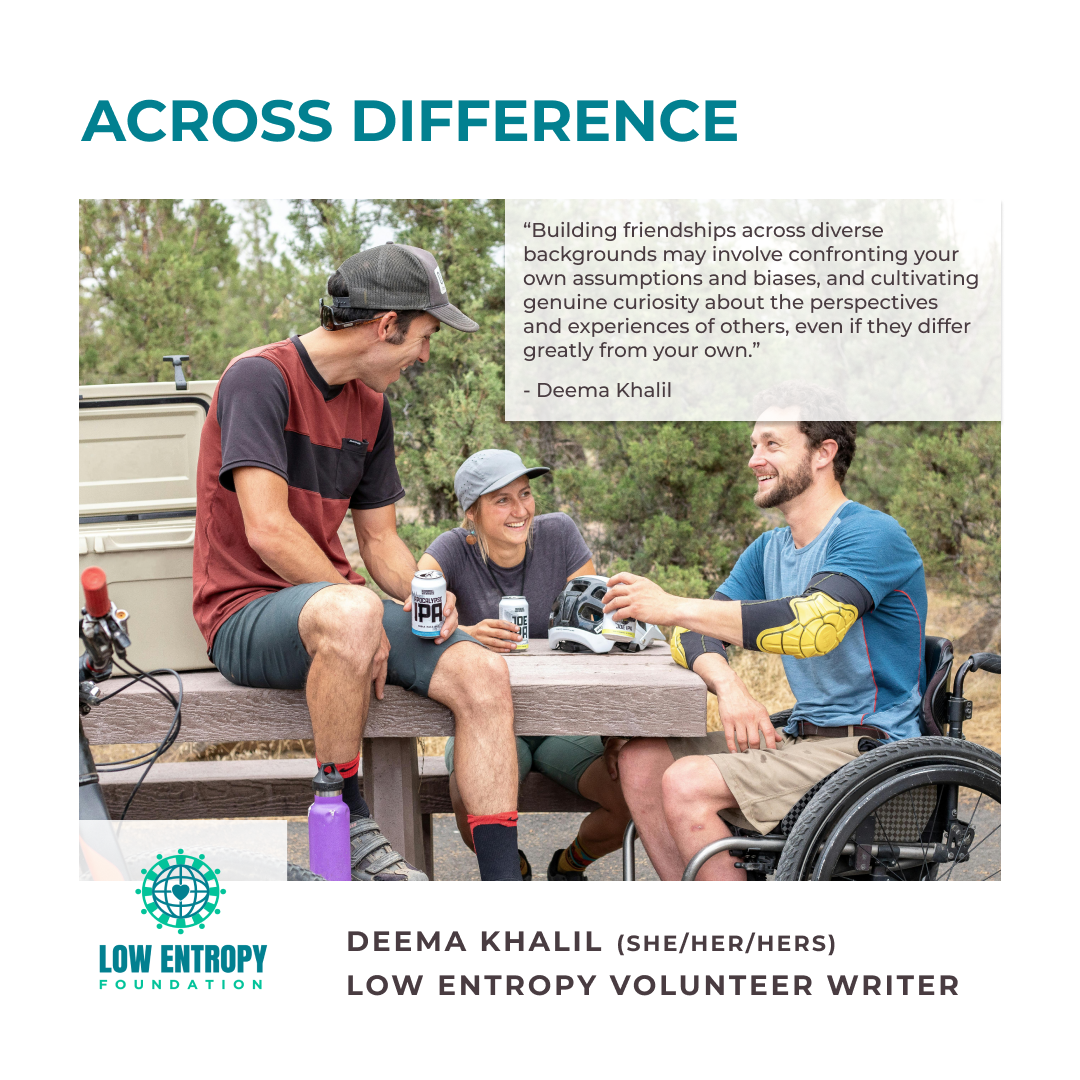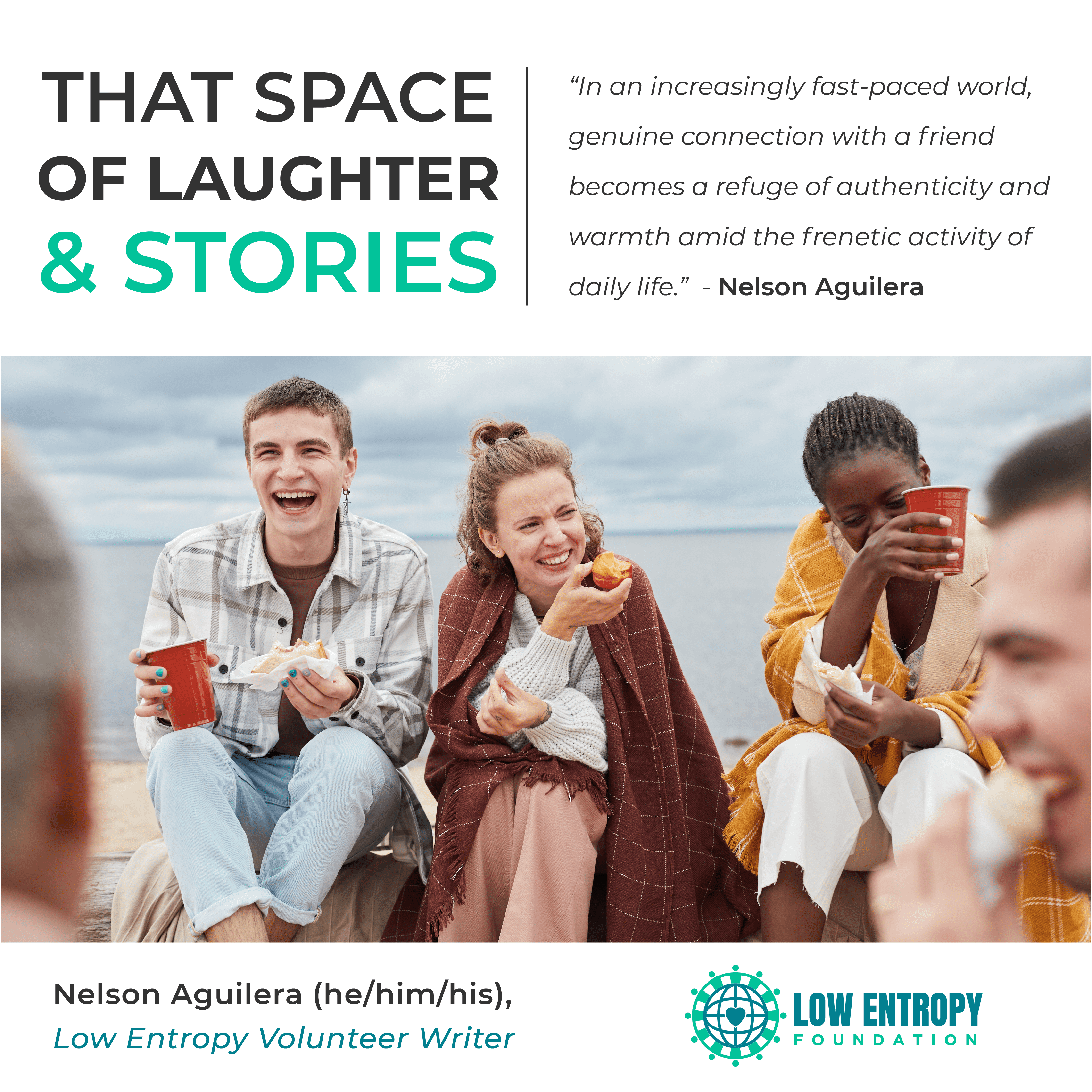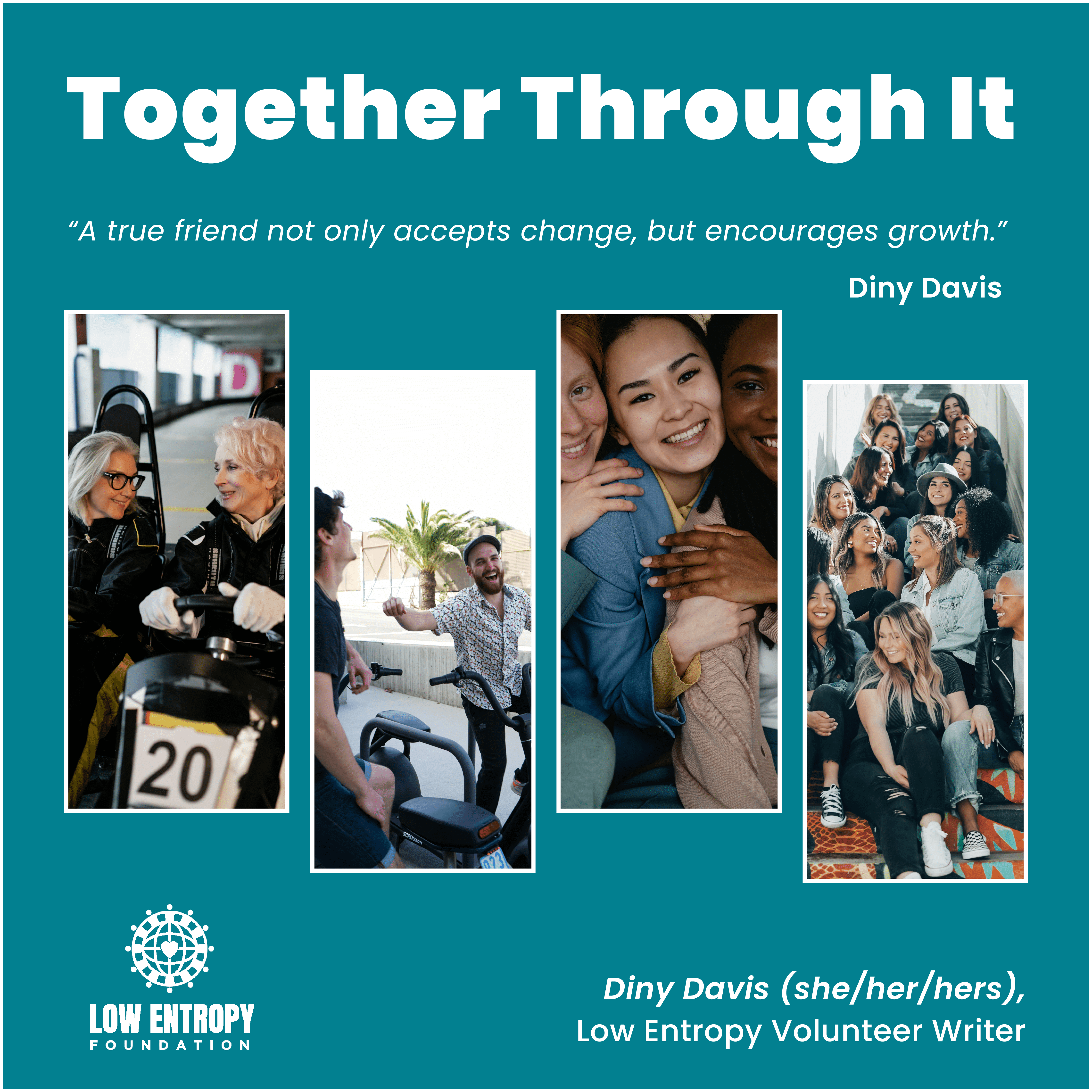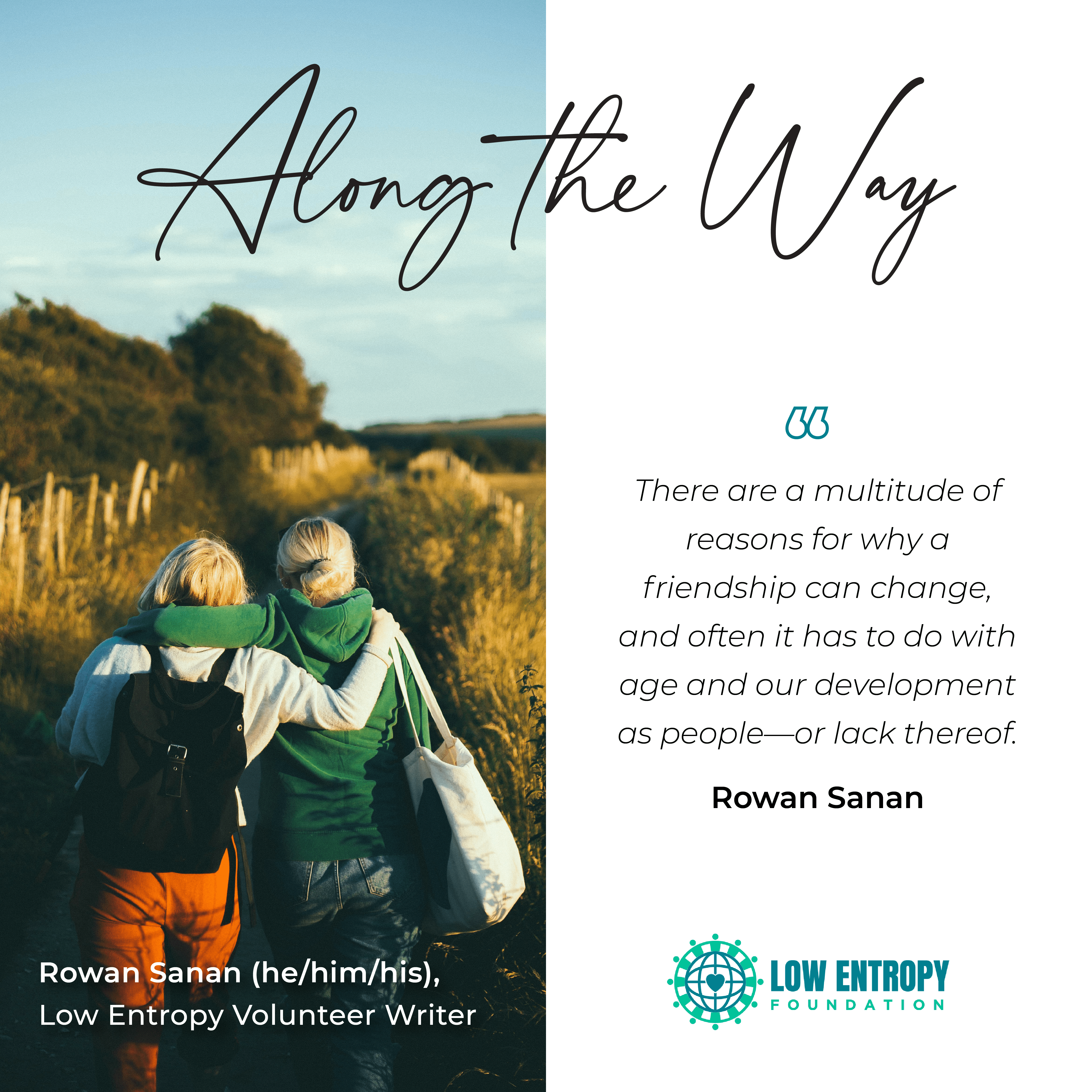Deema Khalil (she/her/hers), Low Entropy Volunteer Writer
Friendship, a deep and meaningful connection, is often built on shared interests, values and experiences. We often seek friends who understand us, resonate with our perspectives and bring a sense of belonging into our lives. But within the wide range of human diversity, how much common ground is truly necessary to cultivate a meaningful friendship? Can a friendship grow in the absence of shared interests and experiences?
It’s natural to gravitate towards those who mirror our preferences, as these similarities provide us with validation and understanding, but the depth of human connection extends beyond perceived similarities and into the realm of empathy, respect and acceptance. For the majority of my life, I was too fixated on similarities and struggled to make and maintain friendships. I believed that a friend was someone with whom I must share a lot in common; otherwise, our friendship wouldn’t last and it wouldn’t be worth the effort. However, once I started opening myself up more, stepping outside my comfort zone and meeting new people without judging their potential, I found myself much more satisfied in my friendships. I became less focused on finding all that I have in common with someone and more open to letting the connection between us naturally unfold.
It’s worth acknowledging the role of curiosity and open-mindedness in nurturing friendships across differences. When you allow yourself to connect with people whose paths may seem very different from yours, your approach shifts from being mind-centered to soul-centered. In this soul-centered approach, you’re more likely to seek traits such as integrity, kindness, honesty and loyalty. These values ultimately form the moral compass of the friendship.
However, implementing this approach may be more challenging than simply understanding it. Building friendships across diverse backgrounds may involve confronting your own assumptions and biases, and cultivating genuine curiosity about the perspectives and experiences of others, even if they differ greatly from your own. Confronting and challenging our biases requires social awareness and conscious effort, but the outcomes are truly worth it!
From my personal experience, I found that one of the most fulfilling aspects of friendships that went beyond shared interests and experiences was the opportunity for personal growth. Interacting with people who have different viewpoints can broaden your knowledge, challenge your beliefs and encourage you to see the world from a different perspective. These friendships can inspire creativity and deepen your understanding of human nature.
So, as you navigate the journey of friendship, cherish those connections that challenge you, inspire you and remind you of the boundless potential of human connection. Be patient with yourself and with others, and approach each interaction with sincerity and authenticity. Remember that there is much more to humans than what appears on the surface. While shared interests and experiences may initially bring people together, it is the underlying values, respect and emotional connection that sustain bonds over time.
Ultimately, the “rightness” of a friendship goes beyond logic, guided by an intuitive sense of connection and resonance. So, how little can you have in common with a friend? Perhaps less than you think, as long as the essence of understanding and connection remains.
—
Deema Katrina is a blogger from Montreal, Canada. She comes from a science background and currently works in the drug development industry, but her interests go beyond that. Some of the topics she passionately explores are self-awareness, personal development and financial literacy. She believes that every person has the capacity to succeed when given the right tools and resources. Her goal is to share the knowledge she learned from delving into these topics and help others become better versions of themselves.












